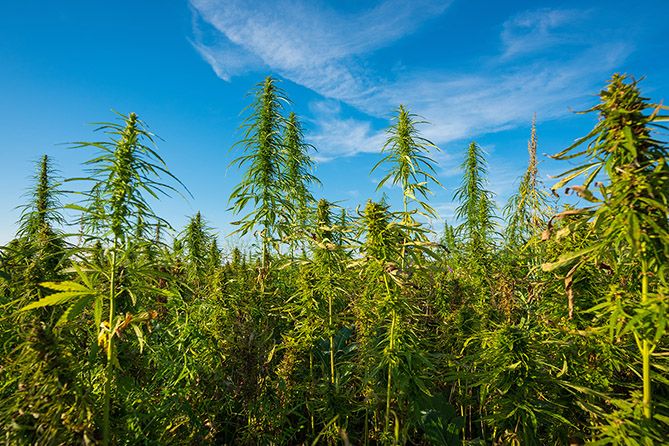As long as some states prohibit cannabis, there will always be an illicit market for marijuana.
“Until it’s legal everywhere, we’re never going to really end the illicit market,” said Kris Krane, president of multistate vertically integrated cannabis company 4Front Ventures, which is based in Arizona.
Legalizing marijuana at the national level would help to:
- Drive down prices to make cannabis cheaper.
- Bring legal prices more in line with those offered by illicit-market sellers.
- Foster interstate commerce so marijuana could be shipped from states that have more suitable climates for cultivation.
- Allow companies to import cannabis from low-cost overseas suppliers.
- Reassure reluctant consumers and combat the stigma associated with marijuana.
Krane pointed out that ending alcohol prohibition meant no one could make beer cheaper than companies that produce at scale, such as Anheuser-Busch, which is why there’s no longer a strong illicit market for alcohol.
“If we want the legal market to compete with the illicit market, we’ve got to make it so people can sell (legal cannabis) for cheaper,” said Troy Dayton, CEO of The Arcview Group, an Oakland, California-based cannabis investment firm.
Interstate commerce
Opening commerce across state lines could drive down prices for legal marijuana if growers in states with robust production and prime outdoor-growing conditions could sell flower to markets that lack adequate supply and growing climate.
For the past couple of years, marijuana businesses in states bordering other legal cannabis programs—such as California, Oregon and Washington—have advocated to allow the sale of marijuana to licensed companies in nearby markets.
But absent a change in federal law, the likelihood of the plan ever becoming a reality is slim.
“Federal legalization means interstate commerce, and interstate commerce means a significant reduction in wholesale pricing,” Krane said.
Even in states such as Washington and Oregon, where overproduction in the state-legal marijuana market has caused prices to tumble, wholesale prices might be even lower if producers could maximize production for nationwide sales. This would help to stop diversion of product to the illicit market and curb prices for consumers as well.
While growers in regions such as Northern California, which has a climate naturally suited to producing cannabis, might be in favor of interstate sales, Krane posited that some states could even opt for “import-only” businesses rather than allow cultivation within their borders.
Other markets that want to protect the economic benefits of their state programs might not be so keen to allow out-of-state marijuana. After all, the current cannabis market supports jobs and fattens tax coffers in participating states.
In the event of federal legalization, however, those states might not have much choice.
“Ultimately, interstate commerce is going to have to be allowed,” Krane said. “We don’t really restrict the free movement of goods across state lines.”
Dayton agrees that interstate business is a key component of federal legalization fighting off the illicit market.
He pointed out that the current legal market has built-in costs such as high taxes and licensing fees that would be alleviated by legalization.
By opening interstate trade, cannabis could be grown primarily in those regions that are best suited for it, which would allow for larger economies of scale, according to Dayton.
“There are states in this country that are never going to legalize cannabis on their own,” he added. “Federal legalization could really make a big difference there.”
Import, export
As seen elsewhere, in Canada for example, legalizing cannabis federally would allow U.S. companies to export and, more likely, import product from overseas.
Canadian companies have been partnering with businesses on other continents since Day One of adult-use marijuana legalization.
Dayton believes that in the future, most cannabis will be grown in Central and South America because land and labor are cheaper in those regions and the climate is better suited for cultivating the plant. That likely will result in U.S. companies developing operations and building grow sites in countries such as Colombia or Mexico to meet production needs.
“That’s going to be the most efficient way to grow cannabis,” he said. “That’s going to lower the price, and that relates back to competing with the illicit market.”
Slaying the stigma
As long as marijuana is federally illegal, there will be a stigma around it. A change in the national law could go a long way to help convince consumers to try it for the first time.
“The stigma around marijuana is certainly perpetuated by the federal government’s lack of legalization of the product,” said Barry Saik, CEO of California-based Greenbits, which supports retailers in more than a dozen states with point-of-sale platforms. “People would feel more comfortable if there was federal involvement in enforcement of the rules.”
The public would be comforted by the safety that comes with federal regulations and traceability, according to Saik.
He compared federally regulated marijuana to how the public views pharmaceutical medicine
“We don’t worry much about the contents of our ibuprofen when we buy it off the shelves,” Saik said. “The government has a role in making sure the products are safe.”
NEXT: Flouting the Law





